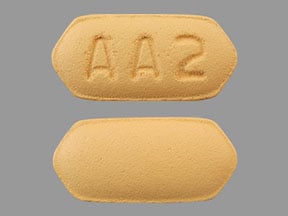
Prasugrel Coupons & Savings Card – Discount Prices from $38.85
Generic for: Effient
Prasugrel, also known by its brand name Effient, is a medication used to prevent blood clots in patients with heart disease who have had a heart attack or experience unstable angina, especially those undergoing angioplasty and receiving a stent. This drug is typically taken once daily alongside aspirin and works as an antiplatelet by inhibiting platelets from clumping, thereby reducing the risk of forming harmful blood clots. This action is crucial in preventing further heart attacks, strokes, or blood clots around the stent, ensuring smoother blood flow throughout the body. However, as a blood thinner, prasugrel may increase the likelihood of bleeding or bruising, and other potential side effects include high blood pressure, high cholesterol, and headaches. Always consult with a healthcare professional before starting any new medication to ensure it is safe and effective for your condition.
Our coupons are free to use. Before paying, show the pharmacist your Prasugrel savings card to get your free discount. Use our filters below to edit the prescription box to match your needs. The Prasugrel prices will update based on your prescription needs. Above our Prasugrel coupons, you can change your location to see pharmacy prices and costs in other areas. We're here to help you buy Prasugrel at the lowest price with our prescription discount card.
My prescription
Edit
10MG, Prasugrel (90 Tablets)
Select pharmacy

CVS
$38.85
COUPON PRICE
Walmart
$39.51
COUPON PRICE
Albertsons
$41.08
COUPON PRICE
Walgreens
$44.10
COUPON PRICEPrasugrel savings card
Show this card to your pharmacist
CVS
$38.85
BIN
ID
PCN
GRP
019876
LHA7023A6C
CHIPPO
LHX
Powered by
Prasugrel, also known by its brand name Effient, is a medication used to prevent blood clots in patients with heart disease who have had a heart attack or experience unstable angina, especially those undergoing angioplasty and receiving a stent. This drug is typically taken once daily alongside aspirin and works as an antiplatelet by inhibiting platelets from clumping, thereby reducing the risk of forming harmful blood clots. This action is crucial in preventing further heart attacks, strokes, or blood clots around the stent, ensuring smoother blood flow throughout the body. However, as a blood thinner, prasugrel may increase the likelihood of bleeding or bruising, and other potential side effects include high blood pressure, high cholesterol, and headaches. Always consult with a healthcare professional before starting any new medication to ensure it is safe and effective for your condition.
Our coupons are free to use. Before paying, show the pharmacist your Prasugrel savings card to get your free discount. Use our filters below to edit the prescription box to match your needs. The Prasugrel prices will update based on your prescription needs. Above our Prasugrel coupons, you can change your location to see pharmacy prices and costs in other areas. We're here to help you buy Prasugrel at the lowest price with our prescription discount card.
More prescriptions for heart attack
coupons from$7.20Save 77%
coupons from$24.11Save 57%
coupons from$2098.39Save 22%
coupons from$17.11Save 55%
coupons from$17.11Save 55%
coupons from$9.35Save 90%
coupons from$2098.39Save 22%
coupons from$36.61Save 34%
More prescriptions for heart attack
Lovenox Save 77%coupons from $7.20
Jantoven Save 57%coupons from $24.11
Innopran Xl Save 22%coupons from $2098.39
Tenormin Save 55%coupons from $17.11
Atenolol+syrspend Sf Save 55%coupons from $17.11
Atropine Sulfate Save 90%coupons from $9.35
Inderal Xl Save 22%coupons from $2098.39
Isopto Atropine Save 34%coupons from $36.61
Prasugrel dosage forms
Use our Prasugrel 5MG coupon with prices from $13.66 for 30 Tablets. You can also use our Prasugrel 5MG coupon with prices from $42.00 for 90 Tablets. We have a Prasugrel 10MG coupon with prices from $38.85 for 90 Tablets. You can use our Prasugrel 10MG coupon with prices from $2.84 for 1 Tablet.
Dosage Quantity Price from Per unit 5MG 30 Tablets $13.66 $0.46 5MG 90 Tablets $42.00 $0.47 10MG 90 Tablets $38.85 $0.43 10MG 1 Tablet $2.84 $2.84 10MG 30 Tablets $12.67 $0.42
| Dosage | Quantity | Price from | Per unit |
|---|---|---|---|
| 5MG | 30 Tablets | $13.66 | $0.46 |
| 5MG | 90 Tablets | $42.00 | $0.47 |
| 10MG | 90 Tablets | $38.85 | $0.43 |
| 10MG | 1 Tablet | $2.84 | $2.84 |
| 10MG | 30 Tablets | $12.67 | $0.42 |
